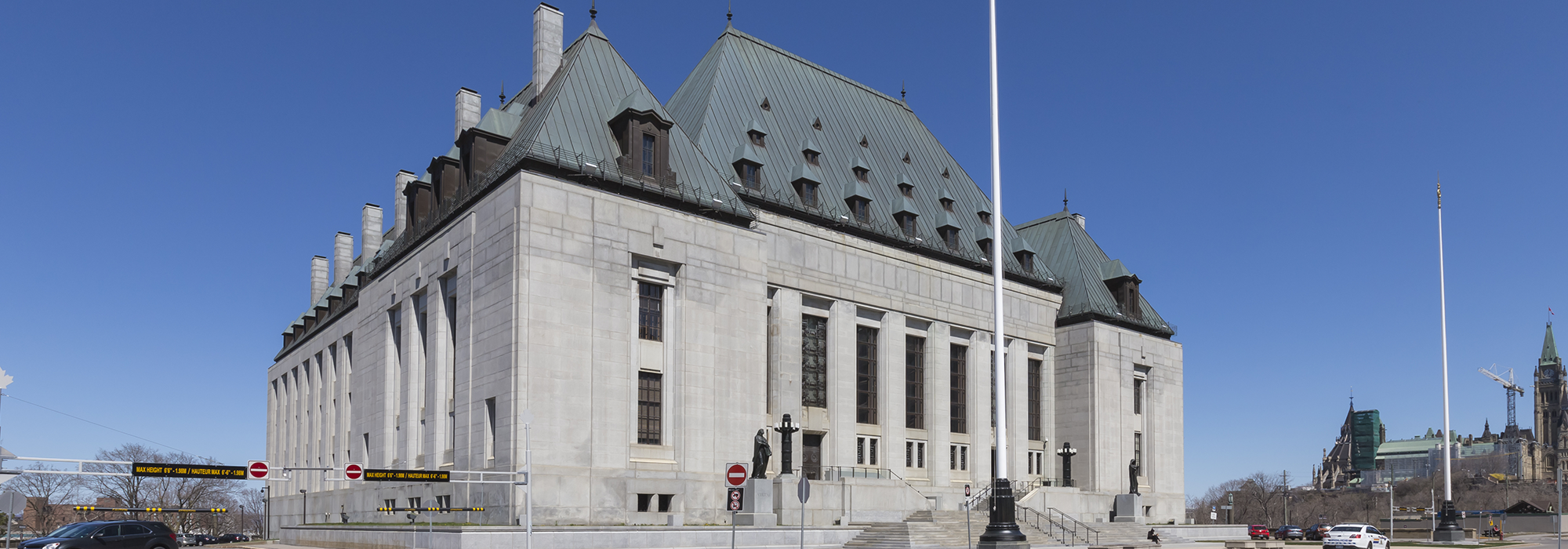
The federal Minister of Justice tabled this month Bill C-14, respecting medical assistance in dying. A key provision is the definition of a “grievous and irremediable medical condition” which establishes eligibility criteria for making physician-assisted death lawful. The bill states:
A person has a grievous and irremediable medical condition if
(a) they have a serious and incurable illness, disease or disability;
(b) they are in an advanced state of irreversible decline in capability;
(c) that illness, disease or disability or that state of decline causes them enduring physical or psychological suffering that is intolerable to them and that cannot be relieved under conditions that they consider acceptable; and
(d) their natural death has become reasonably foreseeable, taking into account all of their medical circumstances, without a prognosis necessarily having been made as to the specific length of time that they have remaining.
Subsections (b) and (d) are very contentious, and there will undoubtedly be amendments proposed to delete them. In my assessment, they are both consistent with the Supreme Court’s decision on physician-assisted dying in Carter v Canada (Attorney General), and compliant with the Canadian Charter of Rights and Freedoms.
Consistency with Carter
The Supreme Court of Canada’s (SCC) remedy in Carter was a declaration that parts of the Criminal Code were invalid, based on the Charter protection of life, liberty and security of the person:
Section 241(b) and s. 14 of the Criminal Code unjustifiably infringe s. 7 of the Charter and are of no force or effect to the extent that they prohibit physician-assisted death for a competent adult person who (1) clearly consents to the termination of life and (2) has a grievous and irremediable medical condition (including an illness, disease or disability) that causes enduring suffering that is intolerable to the individual in the circumstances of his or her condition.
The court’s declaration of invalidity was suspended (or put on hold) until June 6, 2016, to give Parliament the opportunity to come up with replacement legislation. The language in proposed subsections 241.2(2)(b) and (d) of Bill C-14 is not explicitly mentioned in the Carter decision. In her recent Policy Options piece, Jocelyn Downie concludes that, “the Bill therefore falls below the bare minimum established by Carter.” It is an extraordinary claim that judicial silence ties Parliament’s hands, a claim that does not withstand careful scrutiny.
Subsection (b) in the bill, on an “irreversible decline in capability,” parallels the language incorporated by Justice Lynn Smith, the trial judge in the Carter case. She found that the total ban on physician-assisted suicide was unconstitutional for those experiencing “advanced weakening capacities with no chance of improvement.” Although this language was not explicitly adopted by the SCC judges, they did not reject it either. Indeed, the SCC judges did not even acknowledge that she said it. In not commenting at all, the Court cannot be said to have pronounced on the issue. The SCC was at the very least leaving it open to Parliament to adopt such a limitation, which one presumes Justice Smith included to cover people such as Kay Carter, who suffered from a degenerative disease.
Similarly, although the Supreme Court’s declaration of invalidity in Carter does not include any language stipulating “natural death has become reasonably foreseeable” as in proposed in the legislation, the Court made no pronouncement against such a limitation. In canvassing the international and Quebec experience with regimes of medical assistance in dying, which vary as to whether a patient must in any sense be dying to be eligible, the SCC did not weigh the pros and cons of such a limitation. The SCC’s decision in Carter was a declaration against an absolute ban on physician-assisted suicide. It is not a declaration against any future regime of assisted death with safeguards.
The Court’s decision in Carter was not a declaration against an assisted death with safeguards.
The SCC specifically limited the scope of its declaration:
The scope of the declaration is intended to respond to the factual circumstances of this case. We make no pronouncements on other situations where physician-assisted suicide may be sought.
And the Court prefaced its declaration of invalidity by noting “that the impugned laws infringe the rights of people like Ms. Taylor.” Gloria Taylor was a co-plaintiff in the Carter case, terminally ill with ALS. One would be hard-pressed to say that the fact the she was dying was not a relevant circumstance.
Protection of the Vulnerable
When the Supreme Court gave the federal government a year to come up with new legislation, and then extended the suspension to 16 months, it noted that “Complex regulatory regimes are better created by Parliament than by the courts.” The SCC recognized in Carter that deference is owed to Parliament, especially in the circumstance where, as with physician-assisted death, the objective pursued by Parliament involves constitutionally protected rights. The protection of the vulnerable “from being induced to commit suicide at a time of weakness” is the protection of rights of those who, by definition, are not well placed to advance their own rights. The Court did not elaborate on what Parliament would need to do to meet its constitutional obligations to protect the vulnerable from error and/or abuse, beyond saying that an absolute ban on physician-assisted death was not a proportionate balance between competing constitutional rights.
In Carter, the absolute ban on physician-assisted death was found to be a deprivation of life and liberty, contrary to the principles of fundamental justice, in violation of s. 7 of the Charter. The SCC found that an absolute ban on physician-assisted death went way too far in pursuit of its objective of protecting the vulnerable.
In contrast, the proposed subsections 241.2(2)(b) and (d) in the legislation are important in designing safeguards against error and abuse. If there is no state of irreversible decline in capability, and death by natural causes is not reasonably foreseeable, the consequences of potential error are substantially magnified. Without the limitations of subsections (b) and (d), physician-assisted death will remove, over a lengthy period, the possibility of a person changing their mind. The odds of a transitory suicidal wish becoming reality increase. There are greater risks that the notion of a disabled life not being worth living will creep into assessments. Thus vulnerability concerns are substantially magnified if physician-assisted death is not limited as in subsections (b) and (d), and thus would weigh more heavily in the balance.
Anyone challenging the constitutional validity of subsections (b) and (d) would not be able to say that they bear “no relation” or “no connection” to the objective of protecting the vulnerable. Thus they would not be overbroad. Nor could these stipulations be considered to run afoul of the principle that measures not be grossly disproportionate to the objective Parliament is trying to achieve. Moreover, in the alternative, the government would have a defence under s. 1 of the Charter, allowing for reasonable limits on protected rights.
If subsections 241.2(b) and (d) were deleted, physician-assisted dying would be so wide open that the chances increase substantially of people dying who would not choose death if they fully appreciated other options. Vulnerability is potentially a concern for any physician-assisted death (hence the need for other safeguards), but those concerns go way up for people who are not in any sense dying. Thus subsections (b) and (d) are necessary in furthering the important public policy of suicide prevention.
Carter puts the onus on Parliament to craft a regime that provides equitable access to physician-assisted death. At the same time, it places on Parliament a responsibility to incorporate sufficient safeguards to protect the constitutional rights of the vulnerable. With competing constitutional rights – those claiming a right to die versus those vulnerable to being subjected to premature death – it is not open to Parliament to pursue one to the exclusion of the other – that was ultimately the downfall of an absolute ban on physician-assisted death.
Do you have something to say about the article you just read? Be part of the Policy Options discussion, and send in your own submission. Here is a link on how to do it. | Souhaitez-vous réagir à cet article ? Joignez-vous aux débats d’Options politiques et soumettez-nous votre texte en suivant ces directives.







